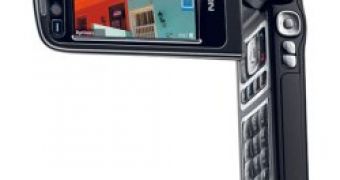According to recently conducted research from ABI Research, Nokia is the smartphone king, maintaining its leadership position with a 56 percent share of the 70.9 million units that were shipped throughout the last year.
Having sold 40 million smartphones in 2006, it has considerably surpassed the number of units sold in the previous year, which is 28.5 million. Last year was good for Motorola as well, that gained the second spot with 8.5 percent market share, mainly due to its Linux-based device, the MING, that was extremely successful in China. While Nokia's smartphones are increasingly popular, the Symbian OS that powers them is not. In fact, it's starting to be less popular with each day that passes by.
According to mobile wireless research analyst Shailendra Pandey, 'The key in differentiating smartphone products still lies in the physical design, and the look and feel of the user interface. The right combination of size, form factor, operating system, and bundled applications will determine the success of a smartphone.'
Smartphone customers have in fact become more pretentious, and aside from Bluetooth, MicroSD card slot, camera and MP3 player, they'll want a bunch of other advanced features included in the device, without of course compromising looks at all. To sum it up, the ideal smartphone is not as bulky as the previous ones were, looks rather stylish and includes a considerable number of interesting features aside from the usual capabilities.
ABI Research's report also revealed that there is a growing need to save on software bill of materials as handset ASPs continue to spiral downwards. Symbian has even lowered its license fees after Linux started to stir more interest. According to Linux director Stuart Carlaw, "It is not a question of 'if' but 'when' Linux will have an impact upon this market. In 2006, Symbian was estimated to have a 73% share of the smartphone OS market, yet our forecast is that it will to fall to 46% by 2012, due to strong competition coming most notably from Linux, but also from Windows Mobile."

 14 DAY TRIAL //
14 DAY TRIAL //